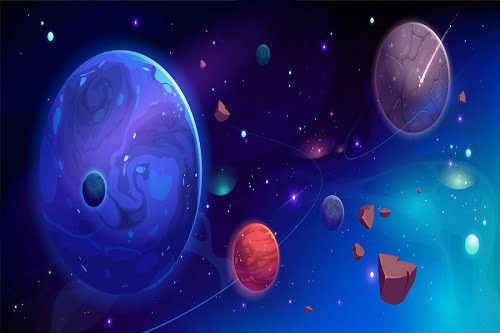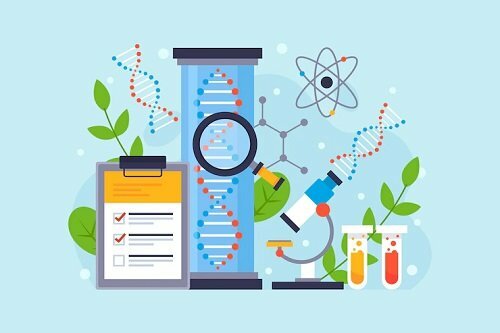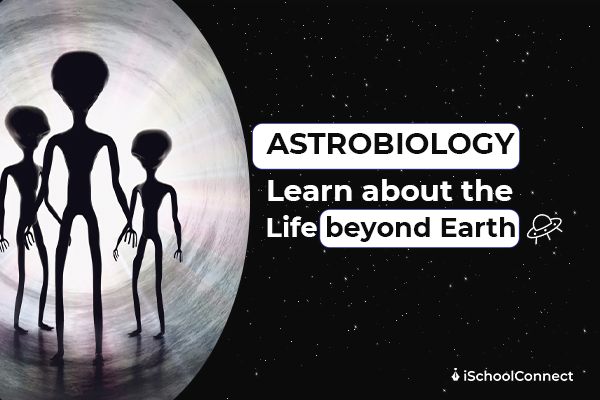Table of Contents
What is astrobiology?
While biology is the study of life on earth, astrobiology is the study of life on other planets. As scientists explore other planets, celestial bodies, and solar systems, they need to understand how these bodies can support life.
This includes understanding their atmosphere, environment, and other essential processes for life. As a result, astrobiology combines biology and astronomy, chemistry, geology, oceanography, and aeronautical engineering.
What does an astrobiologist do?
The primary task of an Astrobiologist is to understand how a planet or celestial body can support life. As a result, astrobiologists are almost always focused on answering specific questions.
They can work together in teams or individually to answer questions like-
- What kind of environment is necessary for life?
- What factors play a role in evolution?
- Can the planet sustain life?
- What can life look like on another planet?
- What environmental factors are considered “extreme” and therefore won’t sustain life?
Astrobiologists rely on data from international agencies like the National Aeronautics and Space Administration (NASA) and the European Space Agency probes such as Pathfinder and Phoenix, and telescopes such as Kelper and James Webb Telescope to explore space and answer questions.
What subjects will you learn?
Astrobiology is a vast interdisciplinary course that includes a wide variety of subjects. Some of the most recommended courses for astrobiology are-
- Space sciences: Astrophysics, Aeronautics
- Earth and environmental sciences: Oceanography, Environmental Studies, Geology, Atmospheric Studies
- Chemical and biological sciences: Chemistry, Human Biology, Biochemistry, Microbiology, Genome and Gene Chemistry
- Mathematics and Statistics
- Evolution and Life Sciences

This is because there are five primary research topics in astrobiology-
- Origin and evolution of planetary systems.
- Origin of organic compounds in planetary systems.
- Steps to life include rock-water-carbon interactions, organic synthesis on earth, and other steps.
- Life and habitability of a planet.
- Biosignatures that facilitate life detection on other planets.
All courses provide a basic understanding of these five topics.
Top universities for astrobiology
Various institutes around the world offer astrobiology courses. Students can pursue either a bachelor’s or a master’s in astrobiology. However, many students choose to pursue this course post-graduation rather than in their undergraduate programs.
Some of the best international universities offering astrobiology courses include-
- California Institute of Technology (CALTECH)
- Cornell University
- Massachusetts Institute of Technology (MIT)
- Harvard University
- The University of Liege – Belgium
- University of Bern – Switzerland
- University of Tokyo
- Imperial College of London
- University of Oxford
- Leiden University – Netherlands
It is worth noting that these universities have extremely rigid selection criteria. Many of these universities have two intakes – Summer and Winter. However, the number of seats and the number of students accepted may vary between the summer and the winter intake. Information about both the intakes will be provided on the university’s website.
Application requirements
The application process for these universities is not complicated. However, before you apply, it is advised to create a shortlist of colleges.

Some documents that are common for all universities include-
- Educational documents: Scorecards, certificates, and marksheets of all educational qualifications, including high school diploma, bachelor’s, and master’s (if applicable).
- Personal identification: Any state-assigned ID must bear the same name as that on your educational qualifications.
- Transcripts: Official statement of marks issued by your university or college.
- Statement of purpose: A detailed letter or essay highlighting why you chose the course and how it is a good fit for your future.
- Proof of English proficiency: Non-native English speakers need to take either TOEFL, IELTS, or Pearson English Test to provide proof of language.
- GRE scores: May vary from university to university.
How much does it cost to get a degree in astrobiology?
The Astrobiology course fees depend upon whether you choose a bachelor’s or master’s. However, for the best universities, the tuition of an astrobiology degree is between USD 20,000 to USD 30,000.
Most universities also provide student aid and scholarships for international students, which can help reduce the price. It is also important to consider living expenses since these are not included in the tuition fees.
What skills does an astrobiologist need?
Since astrobiology is an interdisciplinary field, you need to know some or most of these fields if you are pursuing this industry. Some of the skills that are essential for an astrobiologist are as follows-
- Attention to detail
- Collaboration
- Clear communication and writing
- Data analytics
- Scientific understanding and curiosity
- Mathematics and statistics
- Knowledge of-
- Astrophysics
- Chemistry
- Biology
- Geology
- Oceanography
- Microbiology
- Astronomy
- Earth/environmental sciences
- Biochemistry
- Genome chemistry
- Atmospheric sciences
What about astrobiology jobs?
Astrobiologists are hired by some of the best internationally recognized agencies, including NASA, the European Space Organisation, the Indian Space Research Organization, SpaceX, and so forth. However, the selection process for these organizations is comprehensive.
Depending on your expertise and skill set, you may be hired to work with a team or individual. The average annual salary of astrobiology is USD 119,730. However, the salary can range from USD 128,550 to USD 152,230 per year.
Key takeaways
- Astrobiology is the study of life on other planets
- It’s a combined study of biology and astronomy, chemistry, geology, oceanography, and aeronautical engineering.
- Astrobiology offers many courses, and each has different variations of subjects they offer.
- Shortlist the best colleges for you and check the official website to learn the application requirements.
- An astrobiology degree is between USD 20,000 to USD 30,000.
We hope you found this blog informative. Don’t forget to comment below and share your thoughts! You can also get in touch with us if you have any doubts.
Liked this blog? Read: Atmospheric Science courses – Everything you need to know.
FAQs
1. Is astrobiology a good career?
Answer- Yes, there are many job options as an astrobiologist besides research.
2. Is NEET required for astrobiology?
Answer- Some colleges require you to give an entrance exam, and they will differ depending on the country. Some colleges like the Indian Institute of Science accept scores from NEET and JEE for undergrad courses.
3. Can I become an astrobiologist without math?
Answer- To become an astrobiologist, the minimum educational requirements are space science, astronomy, chemistry, biology, or other science subjects from a reputable university.






